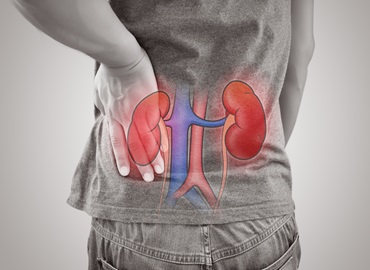Mental Health in Dialysis Patients: Understanding the Psychological Impact of Chronic Kidney Disease and Dialysis
Chronic kidney disease is a condition that alters the lifestyle of patients, it is common all over the world. For most people, dialysis assumes the role of a life-sustaining therapy whenever a patient’s kidneys are unable to accomplish their essential responsibilities. Though the dialysis is medically needed for maintenance of physical health, the very same process boggles mental health. In this paper, it is proposed that psychological problems be further investigated for patients on dialysis with care being given to the psyche of the patient.
Psychological Impact of Kidney Disease
Undergoing a diagnostic test is stressful; therefore, receiving a diagnosis of chronic kidney disease can be overwhelming. To others, it marks the start of a lifelong journey involving medications, dietary limitations, and significant lifestyle changes. Patients’ primary concern is often the progression of chronic kidney disease to end-stage kidney disease (ESKD), requiring dialysis or transplantation, which can trigger anxiety, depression, and hopelessness.
Key factors contributing to the Psychological Impact of Kidney Disease:
- Uncertainty about the future: The chronicity of CKD together with unpredictability of the disease progression leads to insecure feeling.
- Lifestyle restrictions: Changed eating and drinking patterns and altered schedules can severely affect the patient’s wellbeing.
- Physical symptoms: This means that CKD patients for example, fatigue, swelling and other symptoms reduce the quality of life.
- Financial burdens: He said that the cost of treatment is another plus and possible loss of income due to illness just worsens the stress.
Dialysis And Its Mental Health Consequences
Dialysis though being a life-sustaining treatment has some problems associated with it. The testing and treatment processes are time-consuming as it may require a number of sessions a week and the patient seems to be violated. Dialysis is a recurring process, which provides feelings of isolation and anger. However, dedicating time to the task at hand can affect work, family and social relations, therefore causing social isolation.
Some common mental health challenges faced by dialysis patients include:
- Depression: Another work shows that the prevalence of depression among dialysis patients ranges from 10 – 30 %. The primary manifestations include frequent crying, inaptness to activities, problems with eating, and sleeping alike.
- Anxiety: This results into an increased level of anxiety given that patient wants to know more about the treatments, possible side effects of the treatments, and the likelihood of them to rely on the dialysis machines.
- Cognitive Impairments: Forced premature retirement, neurological abnormalities, tremors, uremia, and other metabolic encephalopathies often accompany chronic renal failure in causing memory, concentration, or decision-making deficits.
- Sleep Disturbances: Both insomnia and sleep apnea are common in patients undergoing dialysis, and these conditions worsen fatigue as well as emotional problems.
The Role of Support Systems
- A fellow in this treatment needs support alongside healthcare professionals to manage the mental disorders that result from the disease. Family, friends and healthcare providers help out emotionally as well as physically. ESNW and EC are human resources that might help CKD patients to build up practical methods of coping.
- Peer support groups can also organize a venue through which patients can share their experience, have a change of perspective and feel validated. Some people feel that by interacting with others with similar problems they can ease their loneliness and have companionship.
Measures for Improving Mental Health among Dialysis Patients
Dialysis patients’ mental health care is definitely best served by a combination of those approaches. Below are some effective strategies:
- Routine Psychological Screening: Screening tests can also contribute to the early detection of depression, anxiety, and other disorders so that early treatment can be commenced.
- Counseling and Therapy: CBT and other evidenced-based interventions can provide the patient with ways of dealing with the pressure and other emotional demands that come with life.
- Mindfulness and Relaxation Techniques: Habit like meditation and yoga and even deep breathing exercises are known to help calm stressed and even improve on the emotional health of a person.
- Medication: In some cases, therapy may include the use of antidepressants and anti-anxiety drugs, only if the patient is always under a doctor’s supervision.
- Patient Education: Since we have established that the feelings of patients with CKD are characterized by helplessness, educating such patients about CKD and dialysis can help them to be actively involved in the therapy process.
- Lifestyle Modifications: Health promotion can include exercise, dieting, sleeping habits among others the risk factors can be controlled through health promotion.
Creative Outlets: Doing something of one’s choice counts for a lot in as much as it offers the individual the opportunity to pursue their passion.
Healthcare Provider’s Responsibility
It is the responsibility of healthcare providers to give recommend a people-centered approach. This includes:
- Building Trust: Good patient-physician relations can lead to understanding of patient’s feelings and willingness to express them.
- Integrating Mental Health Services: Introducing psychologists, psychiatrists and counselors in the nephrology teams provides a comprehensive care.
- Recognizing Burnout: It is equally important to recognize the patient’s feelings and give them ways of fighting off burnout.
Promoting Diminished Awareness of Mental Health in Dialysis Patients
Many dialysis patients suffer from mental illnesses, but due to stigma and ignorance people rarely discuss these conditions. Such barriers should be equally addressed within the medical workforce and the greater population and this is best achieved through raising awareness about the possibility of contracting the diseases. Conferences, ongoing projects awareness, and information can enhance the health care professionals understanding of mental health problems and interventions.
Conclusion
- Chronic kidney disease and dialysis is not only a physical process but also an emotional and psychological process that every patient with the diagnosis faces. The psychological impact of kidney disease can be profound, affecting a patient’s overall well-being and quality of life. If and only if the government, caretakers, and chemotherapy patients make serious efforts to focus on mental health and create a healthy environment, it plays a crucial role in improving the life of the dialysis patient.
- People who require special attention and care must receive proper support from healthcare providers, caregivers, and society to get the attention they deserve. The first step toward realizing a more empathetic and effective CKD care system is to appreciate the debilitating psychological impact of kidney disease and dialysis.
Let’s talk, promote mental health for dialysis patients, and support them throughout their journey to make them feel cared for and appreciated.

